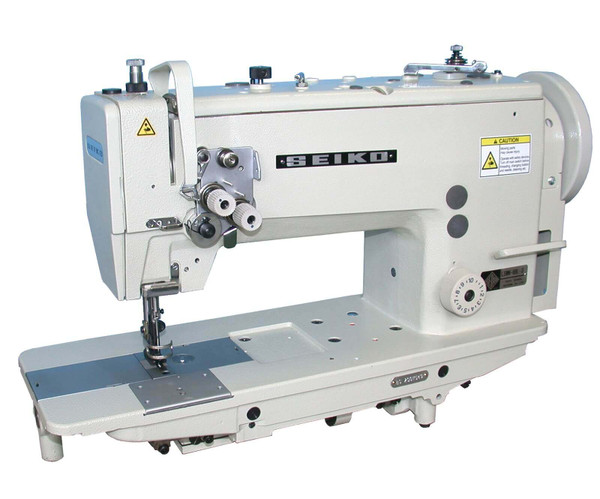
Procedural Posture
On April 16, 2021 by Morthe StandardPlaintiff former employee sued defendant former employer, on behalf of himself and other current and former California hourly non-exempt employees, alleging multiple claims under state law with regard to the payment of wages and overtime. The employer moved for a protective order in which it sought to limit the scope of discovery sought by the employee.
Table of Contents
Overview
The employee sought to represent all current and former California-based, hourly, non-exempt employees who were employed from September 25, 2003 until the present; and all current and former California-based, hourly, non-exempt employees who separated or terminated their employment between September 25, 2004 and the present. The employer alleged that the employee’s pre-class certification discovery that sought information related to thousands of its state-wide employees at hundreds of different offices and franchises was unreasonably broad, unduly burdensome, and irrelevant to certification of a class common to the employee. The court found that the relevant time period, as well as the scope of the requests as currently set, was over broad and burdensome at this stage in the proceedings. The time period of September of 2003 to present was excessive in light of the employee’s relevantly short period of employment with the employer, which lasted from July 1, 2007 until August 18, 2007. The employee failed to demonstrate good cause warranting the expansive discovery of the employer’s roughly 10,000 employees at 50 offices throughout the state.
Outcome
The court granted in part the employer’s motion for protective order and limited the relevant time period to 2007 for the employee’s requests and limited the scope of the employee’s requests to the employer’s San Diego County office where the employee was employed. The motion for a protective order was denied in part with regard to certain request for production of documents. Appellant was represented by a business attorney.
Procedural Posture
Plaintiffs, employees, filed a class action lawsuit against defendant employer alleging claims Cal. Lab Code §§ 226.7, 512, 226 and 203 and Cal. Bus & Prof Code §17200 et seq., with regard to an alleged failure to provide meal and rest periods to hourly employees. The parties moved for preliminary approval of a settlement agreement.
Overview
The employees were package handlers. Their primary duties were related to processing packages through terminals and hubs. They were expected to be at work stations along conveyor belts at all times the belts were moving. The employees alleged that in many instances, the employer did not shut down the conveyors to allow the employees an opportunity to take their meal or rest periods. The court found that the procedure for reaching this settlement was fair and reasonable and that the settlement was the product of arms-length negotiations. The court was satisfied that the numbers represented a reasonable damages calculation based on the evidence available to counsel. Because the lodestar cross check revealed a relatively low multiplier, the court was satisfied that counsel’s requested fee award was not unreasonable. The court was satisfied that the revised notice adequately apprised class members of their rights under the settlement. The employees who wished to object to the settlement could file and serve a written objection or could simply appear at the fairness hearing. The court certified the employees and counsel as lead plaintiff and class counsel for settlement purposes.
Outcome
The court granted the motions for preliminary approval of the settlement, conditional certification of the class for settlement purposes, approval of the proposed form of notice and approval of the proposed opt-out, objection and claim procedure
You may also like
Recent Posts
 Unleashing AI Power for Small Business Marketing Success
Unleashing AI Power for Small Business Marketing Success Pourquoi Choisir Une Structure En Acier Pour Vos Projets En Afrique ?
Pourquoi Choisir Une Structure En Acier Pour Vos Projets En Afrique ? Top IPTV France Providers: Finding the Best Service for You
Top IPTV France Providers: Finding the Best Service for You The Importance of Innovation Management in Business Success
The Importance of Innovation Management in Business Success How to Measure Lab Diamond Ring Size
How to Measure Lab Diamond Ring Size Web hosting plan: pro and cons of shared hosting and VPS hosting
Web hosting plan: pro and cons of shared hosting and VPS hosting White Sapphire vs. Diamond: The Ultimate Comparison
White Sapphire vs. Diamond: The Ultimate Comparison How Pawnbroking Works: A Step-by-Step Guide to Pawn Loans
How Pawnbroking Works: A Step-by-Step Guide to Pawn Loans GH Express LLC: Your Strategic Partner for Business Success in the U.S.
GH Express LLC: Your Strategic Partner for Business Success in the U.S.Novita Diamonds Shines a Light on Women’s Empowerment with Dress for Success Partnership
Buying Ethereum Down Under: Your Guide to Purchasing ETH in Australia
 Exploring the Brilliance of Lab-Grown Diamonds: Understanding the 4Cs
Exploring the Brilliance of Lab-Grown Diamonds: Understanding the 4Cs Lab Diamonds: The Top Choice for Ethical, Affordable, and Sustainable Brilliance
Lab Diamonds: The Top Choice for Ethical, Affordable, and Sustainable Brilliance SEO Backlink Services and Template Customization by a Pennsylvania SEO Expert
SEO Backlink Services and Template Customization by a Pennsylvania SEO Expert The Sparkle of Sustainability: Lab Grown Diamonds Adelaide
The Sparkle of Sustainability: Lab Grown Diamonds Adelaide
Popular Posts
 Leveraging User Forums and Communities: Online iPhone Selling
Leveraging User Forums and Communities: Online iPhone Selling Why You Should Be Adding Content to Google My Business
Why You Should Be Adding Content to Google My Business 360-Degree Digital Marketing Services: What’s included?
360-Degree Digital Marketing Services: What’s included? What are the Different Types of Marketing?
What are the Different Types of Marketing? 5 Tips for Sharing Files and Information Online
5 Tips for Sharing Files and Information Online 6 Major Factors To Consider Before You Hire Marketing Agencies Auckland
6 Major Factors To Consider Before You Hire Marketing Agencies Auckland First-Time Buyer’s Guide to Industrial Sewing Machines
First-Time Buyer’s Guide to Industrial Sewing Machines Benefits of Hiring a Full Time SEO Specialist
Benefits of Hiring a Full Time SEO Specialist Tips For Effective And Appealing Web Design
Tips For Effective And Appealing Web Design 3 Biggest Strategies That Can Help You Scale Up Your Company
3 Biggest Strategies That Can Help You Scale Up Your Company Using An SEO Consultant To Amp Up Your SEO Strategy During COVID-19
Using An SEO Consultant To Amp Up Your SEO Strategy During COVID-19- What Is The Essence Of Enterprise Resource Management Systems
How To Make Your Air Conditioning Business Ready For Google?
 Why Should You Add Comments To Your Blog?
Why Should You Add Comments To Your Blog?) 3 Reasons Why Forecasting Sales Is Important For Businesses
3 Reasons Why Forecasting Sales Is Important For Businesses
Most Viewed Posts
 API Integration Best Practices: Ensuring Secure and Scalable Solutions
API Integration Best Practices: Ensuring Secure and Scalable Solutions On The Whole Learning Elaborating Open Source API Tools
On The Whole Learning Elaborating Open Source API Tools Eliminate Annoyance By Fixing These Google Drive Problems
Eliminate Annoyance By Fixing These Google Drive Problems Reasons To Kick-Start Node JS Centric Product Development With Full-Swing
Reasons To Kick-Start Node JS Centric Product Development With Full-Swing Reasons Why It Is Important to Select the Best Online Education Platform for a Programming Assignment
Reasons Why It Is Important to Select the Best Online Education Platform for a Programming Assignment 6 Benefits of Using a Good Website Builder
6 Benefits of Using a Good Website Builder Techinques To Take Services For App Developers
Techinques To Take Services For App Developers- Four compelling reasons why the cloud makes it easy is the ideal IoT application
 A Guide To Hiring The Best Web Development Company
A Guide To Hiring The Best Web Development CompanyThe Best Tools For Mobile-First Indexing Strategy Development
